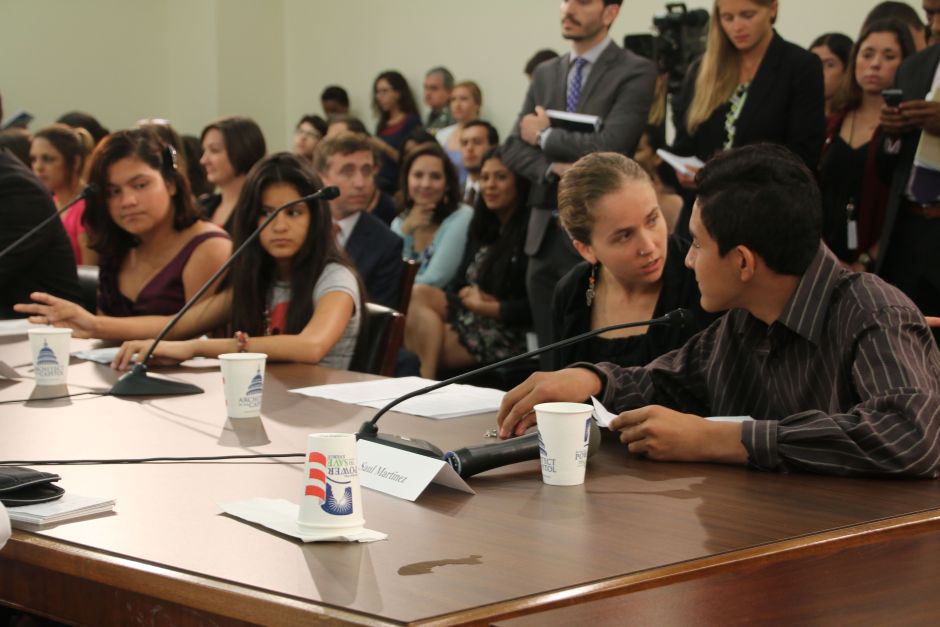Independent employees seek a waiver in the law that allows them to earn enough income; if not, some already think about moving from California.
Almost two months after the AB 5 labor law took effect in California, thousands of independent workers have begun to ravage and many are already complaining, even asking for their professions to be revoked or exempted.
And what has become beneficial for Uber and Lyft drivers, receiving some benefits if they work more than certain hours, has severely affected other professions such as writers, photographers, interpreters, artists, truckers and other independent creators.
One of them is Anabella Tidona, an interpreter from Los Angeles, with 10 years of experience – including judicial and medical areas – said that it is very common for interpreters to work for multiple clients.
She explained that it is almost impossible to be a single client interpreter eight hours a day, seven days a week.

“No one needs me 365 days a year. With the agencies that work more than 20 days a year, ”said Tidona, explaining that one day he can easily be making a judicial interpretation, the next day a medical interpretation, then community meetings, among others. Your day is not the same every day as in other jobs.
"I receive up to 30 [forms] of 1099 per year and that's fine for me," Tidona said. "I pay my taxes and my medical insurance on my own."
Recently Barry Slaughter Olsen and Katharine Allen, both translators, interpreters and independent instructors in California and co-chairs of InterpretAmerica, an organization dedicated to raising the profile of the interpretation, published an open letter calling on state legislators to solve what they call "A serious flaw".
They estimated that there are more than 5,000 interpreters and translators in California.
“Most of us work as independent contractors, a model that adapts to the facts of our highly qualified work to meet intermittent, specialized and often immediate demands,” reads the letter published on January 14 in The Californian.
Additionally, they explained in the letter that most of the translators, who work in writing, and the interpreters, who work verbally in real time, do not have a permanent job with any particular organization.
"Why? Because linguists who speak Hungarian, Urdu, Hebrew or Armenian, for example, do not have a permanent demand. But for a visiting head of state, an athlete, scientist, refugee or injured tourist, immediate access to that experience can be a matter of great urgency. ”
Assemblywoman Lorena González, author of the measure, sent a statement in response to questions from La Opinion and about her position to the large number of complaints that have arisen after the AB 5 law entered into force at the beginning of the year.
State audits found at least 4,111 individual cases in which interpreters and translators were being deceived when receiving a fair salary, Social Security and other benefits at work because their employer misidentified them as contractors. Intermediary agents or employers in this industry have been under scrutiny for their business practices long before the AB 5 law arose or Dynamex's decision was given, the assembly said in a statement.
“I will always be firm with the workers when they are treated unfairly. These labor agents in the translation industry earn for each employee's work and avoid paying Social Security, Medicare, other workers' compensation and unemployment insurance. Workers deserve better. Those who have benefited from the fruits of other people's work are the ones who are now protesting the most, ”Gonzalez said in his response.
It's not ‘a little chambita’
Tidona said that the AB 5 law identifies these professions as “gigs,” which translates as small jobs or “chambitas,” which is something incorrectly identified in many areas.
“It is not a little chambita. We all have degrees, masters and as professionals we want to have autonomy, ”said the interpreter.
Language professionals are part of a global market of $ 53 billion, and California has been considered the central hub taking advantage of academic, entertainment, medical and aerospace infrastructure.
“[The interpreters] do an important job guaranteeing linguistic access to the legal, medical system etc. but AB5 is limiting our freedom to remain independent, ”said Tidona. She says that the “employee-employer” model does not work for her and does not bother them in the least to pay for their medical insurance, vacations or sick days themselves.
“Some interpreters need flexibility to be their own boss. The interpreters do not change the freedom we have for nothing, ”said Tidona.
Law AB 5, which took effect on January 1, 2020, sets new limits on who can be classified as an independent contractor and provide benefits such as health insurance, sick days and paid vacations, as well as overtime worked.
Tidona said that, in this case, the law is a good model with good intention, but unfortunately it does not fit for everyone.
"We should have the exemption as do doctors, real estate agents, lawyers among others," said Tidona. "There are workers like Uber and Lyft who do occupy those protections, but we don't."
Tidona said that the interpreter work, as it was before AB 5, was considered middle class where interpreters and translators can become owners of their own home, pay their own medical insurance, their days off, as well as their own taxes
However, after the law took effect, she has seen a decrease of approximately 20% in her hiring and some of her colleagues have seen up to 40% reduction.
"The agencies prefer to go to other states and do not want to do more jobs in California," said the interpreter.
She said she has met with several colleagues and has spoken with her assembly members and senators to support them to make an exemption in AB 5, however, they have been told that they cannot do anything because they did not write it.
A group has already tried to contact Assemblywoman Lorena González of San Diego, but they say they have not received a response.
"If they don't give us the exemption this is going to be very bad," said Tidona, who is already considering moving state.






